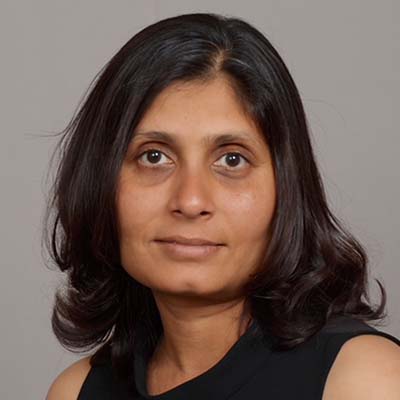

- Anita Bubna
- Director, Treasury Advisory, PwC
Changing Careers the Unconventional Way
The prospect of finding a new job can be extremely daunting, especially if you feel you might have taken a wrong turn in your career. But the realisation of such an error can also be the beginning of the journey towards your dream job.
There’s a universal truth that people in search of a job will almost inevitably stumble upon at some point, and that is ‘it is much easier to get a job when you have one’. As universal truths go, it’s perhaps one more reason why it’s often seen as a massive risk to leave a job without one already lined up. But sometimes it is more important to let your inner voice guide you and make some unconventional decisions.
Head turned
I spent around 13 years working in treasury for a US-based, diversified manufacturing company. These were wonderful times. I was continuously challenged with multiple transformation projects, I secured the roles and opportunities I wanted, and had the freedom to drive transformation within the company. I could not have asked for more. But, having explored all the roles in treasury, I was ready for a new challenge, and made a lateral move within the organisation. That did not work out as I had hoped.
Falling for the lure of something different, I had taken a job that I knew almost immediately was not right for me. Instead of hanging on to that position, I took the decision to leave without another one to go to. I know that there is a stigma attached to the approach I took – for some people it is quite the wrong thing to do – but looking back, I don’t regret my decision at all. Yes, it was unconventional, but I’d thought long and hard about it, I believed in what I was doing, and concluded that it was a risk I was willing to take.
I had several reasons for my course of action. I wanted to take a break to reflect and think clearly about what I really wanted to do. I needed to make the job change my priority rather than keep it on the back-burner, as it would almost certainly have to be if I remained in my existing job. I also felt that I should invest quality time in a decision that would have an impact on me for several years to come. It’s also true that staying in a role that was not well suited to me was demoralising, and that I was not willing to prolong that experience. What’s more, I recognised that I had worked hard at my job to develop my skills and knowledge, and knew that those attributes would be marketable.
Seeking my USP
I started with some soul searching but found the question ‘what do I want to do?’ initially rather intimidating. I knew treasury was still the right area for me, but I needed to gather my thoughts and find a more concrete starting point. I read books and attended courses and learnt that ‘ground zero’ is often a matter of looking at personal strengths, and then deciding how these align with the most-valued professional traits.
I wanted to discover my blind spots both in strengths and weaknesses so I found it easier to get started by talking to my former team, my manager, my peers, and my family. I wanted to understand what they thought came effortlessly to me but was perhaps harder for others to achieve. In essence, I was looking for my USP.
Some said I was a visionary and could think of new ideas on my feet. Some admired how I could get into the depths of complex subjects quickly and understand the key themes to be addressed. One recognised my project management skills, while another focused on my speaking and writing skills.
Seeking external views can be an extremely revealing and valuable exercise for self-realisation. But the next stage was to figure out what treasury teams value and need. I set up one-to-one sessions with other female treasury leaders. I wanted to ask them what they valued in their teams and what were their unmet needs. While I did not get the definitive answer to my question, I learnt a huge amount about how individual career paths, and the expectations that support them, change.
One leader talked about how, when taking on the seemingly dream role of setting up a treasury from scratch, all her hard work only ever amounted to using what she already knew. She felt she added few new skills to her repertoire. In another conversation, while I had only ever heard negative reactions to a career in consulting, one treasurer revealed that once her children had grown up she would be more than happy to return to consultancy life.
Conventional ‘wisdom’ may often yield results, but it is more important that we create our own definition of success and have the courage to pursue our own dreams.
Following these at times frank and revealing conversations with peers, my team, and my managers, I started looking at job postings and narrowing down the roles I felt suited me best. My list naturally contained treasurer and assistant treasurer positions, but I was also now widening my net to include product manager and advisory roles in banking, and even consultancy. It was important for me to expand my options as my redefined criteria demanded a role that would fully enable me to play to my strengths.
At this stage it was clear that the best way to find out what different treasury teams value was to take on a large number of interviews. The question now was how I was to land these interviews because the number of suitable postings with the right level of seniority, remuneration, and geographic location were few and far between. I determined that I needed to get the word out far and wide that I was in the market for a new position.
Here are the steps I took:
- I informed all the bankers that I have worked with that I had left my company and was now looking for a new role
- I revisited my LinkedIn profile and reviewed messages from recruiters, establishing contact with them and letting them know my plans
- I re-established contact with companies that had previously made employment offers to me but which I had declined at the time
- I attended treasury events and let people know I was looking for new opportunities
- I had one-to-one conversations with my treasury peers
- I applied for jobs directly
In order of positive responses for interview, I got the most out of contacting firms who had extended offers to me in the past. Second were the recruiters who had previously reached out to me. The next most successful approach was to my contacts who I knew had a job posted online. Applying to roles directly had some success too. In fact, the power of direct contact should never be underestimated because this is how I eventually found my dream job.
Creating a routine
I followed a regimented schedule to keep the momentum going. I made sure that I had finished all my daily activities before 11am. Then I would begin the job application process. This soon became akin to a full-time job in itself, with the demands of six to eight interviews a week, and up to seven interviews for each job, quickly filling my diary.
With so much going on, preparation for interview was essential. In order of priority, I took this approach:
- Analyse the job description and then map my skills and accomplishments to that job
- Listen to published interviews with the target company leadership, for example on podcasts
- Study the latest earnings releases and evaluate treasury-related information from the firm’s 10-K [US public company financial performance] submission
- Research the industry/sector and acquire an understanding of the firm’s products and its challenges
- Read recent press releases and statements
- Review LinkedIn profiles of people who have previously held that job, contacting them to ask about their experience working with the company, and discovering the skills and attributes needed to be successful in that role.
Making choices
During the process, one of the main hurdles I faced was what to do with jobs where the remuneration was lower than the target I had set. I had to ask myself if, in all honesty, it would make sense to pursue those interviews. Eventually I concluded that compensation is just one part of job satisfaction and that it would be worth interviewing for those jobs that were lower in pay if they met other criteria.
I’m glad I did as I gained valuable insight from the process. I learnt about different industries, about my strengths and weaknesses, and about the talent in these industries. And even if for some reason a particular role was not right, many contacts I made through the process were willing to introduce me to other parts of their organisation, or indeed to their connections in other organisations.
After six weeks of intense introspection, research, and interviewing, I received an offer for my dream job as a consultant. While others had projected their fears about consultancy onto me, and some recruiters had viewed my desire to take this direction with scepticism, I am so glad I listened to my inner voice and did what I believed was right for myself.
I would not unconditionally recommend to others that they quit their jobs before finding another. But it’s worth knowing that sometimes an unconventional path can also lead to happiness.
I am glad that I have always questioned conventional wisdom and have taken the road less travelled knowing that sometimes I may take a wrong turn or become lost. But this is part of the process of reaching an exciting destination. Conventional ‘wisdom’ may often yield results, but it is more important that we create our own definition of success and have the courage to pursue our own dreams.



